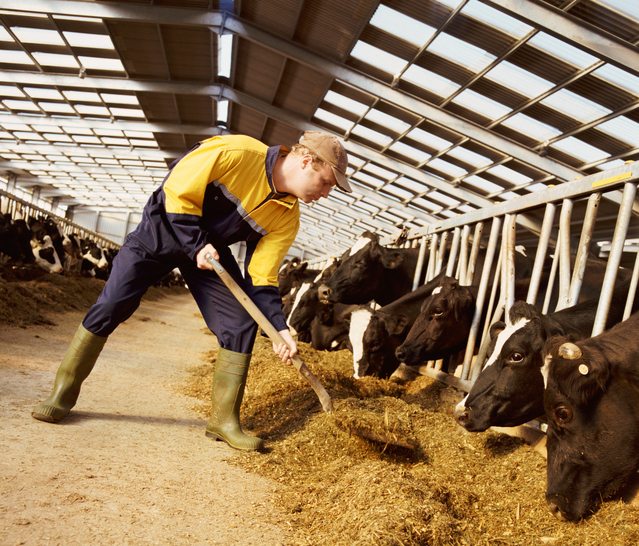
The livestock industry is one of the largest and most influential industries on the planet. With millions of farms and billions of animals worldwide, its ultimate goal is to “manage production for optimal yields to ensure economic viability and to supply sufficient volumes to feed large populations”. Considering this, it becomes clear that livestock nutrition is an important – if not the most important – aspect of a livestock operation. The health of large animal groups directly correlates with the operational stability and overall profitability of a farming operation.
Every livestock operation has unique characteristics that lead to distinct livestock nutrition requirements. Because of this, it is essential to review the ingredients of livestock feed to understand the nutritional effect it will have on different types of animals.
Livestock Nutrition
Livestock nutrition is primarily concerned with six different food groups, all of which serve a specific purpose in maintaining livestock health, weight, and product viability:
- Carbohydrates are composed of carbon, hydrogen, and oxygen and provide energy to animals
- Proteins contain nitrogen that supplies rumen microorganism requirements and provides another source of energy to animals
- Fats have a higher ratio of calories per unit of weight than carbohydrates and sugars and can increase energy density in feed portions
- Water is a basic requirement for all animals to survive and thrive
- Vitamins are organic nutrients that increase an animal’s resistance to diseases while also help maintain body functions
- Minerals are inorganic elements that aid in maintaining health, and supporting growth and reproduction
No food group is necessarily more important than the other, but many producers concern themselves the most with protein-rich feeds, as they tend to be the most expensive feeds to acquire, distribute, and store.
The Effects of Feed Ingredients on Livestock Nutrition
Livestock nutrition is largely a sum of feed ingredients and additional supplements which have been mixed into the feed. According the American Feed Industry Association, there are more than 900 different agricultural products that are used to create animal feed. Of these, the ingredients most commonly found in livestock feed are:
- Barley
- Corn
- Soybean meal
- Distiller’s grain
- Sorghum
- Wheat
Different feed ingredients will serve different purposes for nutrition; for instance, while corn contains all six essential ingredients for livestock nutrition, foods like hay can only provide carbohydrates and some fat.
In addition to variations in ingredient composition, livestock nutrition will also vary depending on the animal’s stage of life. Younger bovines and poultry will require greater amounts of protein in order to encourage growth, whereas lactating dairy cows will need higher amounts of good quality optimum fiber in their diet. The diet of dairy cows will also have an effect on the level of fat in the milk they produce, which can further complicate their profitability.
Many farms also use supplements in addition to providing their animals with regular feed. Supplements are present in many different forms of feed, and they often provide critical boosts to overall animal health. Some of the most common livestock nutrition supplements are:
- Toxin binders
- Pellet binders
- Acidifiers
- Mold inhibitors
- Concentrated vitamins and minerals
- Flavors
- Direct Fed Microbials
These supplements are mixed in with the feed so livestock naturally consumes nutrients over the course of a day or a week. Supplements help with many different aspects of livestock nutrition, but they are especially useful for promoting healthy reproduction and for maintaining health during cold weather seasons.
The ingredients and mixture of feed will vary depending on the intended consumer and the overall purpose for livestock. For example, chicken feed tends to include a larger amount of carbohydrates, since poultry often prefers to consume feed that contains some “scratch grain”. Conversely, equine herds require large amounts of hay and barley in their diets to maintain optimal health levels. Livestock nutrition is not a “one size fits all” solution. The types of supplements you use to support livestock health will depend on your operational goals and the requirements of the animals you care for.


Nice piece of information, thank you!
Thank you for fantastic information. I’ve been looking for feed nutrition information like this for awhile without much luck.
Livestock nutrition calculated through (total mixed ration) fodder, hay, concentrated all together are considered the base requirement of TDN as per production or age or lactation capacity. TDN varies according to the feed formulation of livestock formulate, feed additive help to increase the efficiency of TMR for better production and better livestock health.
Thanks for your research your products are very important to farmers